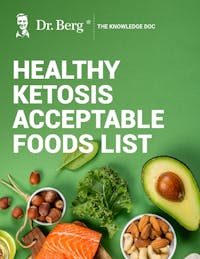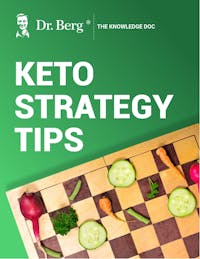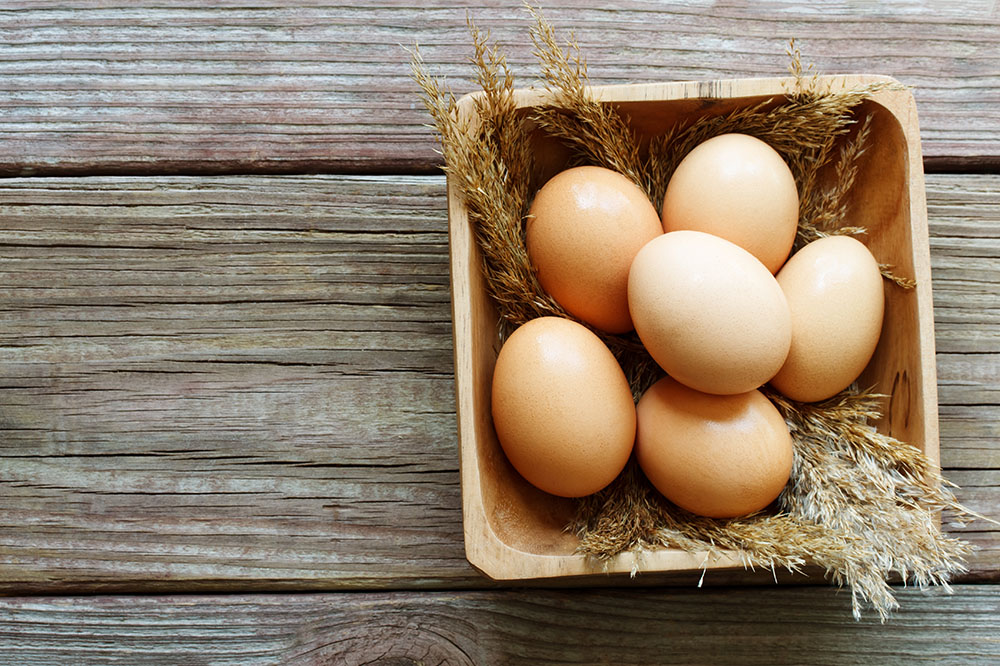How Many Eggs Can I Eat Per Day

Healthy Keto Acceptable Foods List
Explore a comprehensive list of foods and beverages that align with Healthy Keto®
Identify which foods support fat-burning and metabolic health
Discover nutritious options for fats, proteins, and vegetables to support your health goals
Learn about common foods that aren’t Healthy Keto-approved

Healthy Keto Acceptable Foods List
Explore a comprehensive list of foods and beverages that align with Healthy Keto®
Identify which foods support fat-burning and metabolic health
Discover nutritious options for fats, proteins, and vegetables to support your health goals
Learn about common foods that aren’t Healthy Keto-approved

Healthy Keto Acceptable Foods List
Explore a comprehensive list of foods and beverages that align with Healthy Keto®
Identify which foods support fat-burning and metabolic health
Discover nutritious options for fats, proteins, and vegetables to support your health goals
Learn about common foods that aren’t Healthy Keto-approved

Healthy Keto Acceptable Foods List
Explore a comprehensive list of foods and beverages that align with Healthy Keto®
Identify which foods support fat-burning and metabolic health
Discover nutritious options for fats, proteins, and vegetables to support your health goals
Learn about common foods that aren’t Healthy Keto-approved

Healthy Keto Acceptable Foods List
Explore a comprehensive list of foods and beverages that align with Healthy Keto®
Identify which foods support fat-burning and metabolic health
Discover nutritious options for fats, proteins, and vegetables to support your health goals
Learn about common foods that aren’t Healthy Keto-approved

Healthy Keto Acceptable Foods List
Explore a comprehensive list of foods and beverages that align with Healthy Keto®
Identify which foods support fat-burning and metabolic health
Discover nutritious options for fats, proteins, and vegetables to support your health goals
Learn about common foods that aren’t Healthy Keto-approved

Healthy Keto Acceptable Foods List
Explore a comprehensive list of foods and beverages that align with Healthy Keto®
Identify which foods support fat-burning and metabolic health
Discover nutritious options for fats, proteins, and vegetables to support your health goals
Learn about common foods that aren’t Healthy Keto-approved

Healthy Keto Acceptable Foods List
Explore a comprehensive list of foods and beverages that align with Healthy Keto®
Identify which foods support fat-burning and metabolic health
Discover nutritious options for fats, proteins, and vegetables to support your health goals
Learn about common foods that aren’t Healthy Keto-approved

Healthy Keto Acceptable Foods List
Explore a comprehensive list of foods and beverages that align with Healthy Keto®
Identify which foods support fat-burning and metabolic health
Discover nutritious options for fats, proteins, and vegetables to support your health goals
Learn about common foods that aren’t Healthy Keto-approved

Healthy Keto Acceptable Foods List
Explore a comprehensive list of foods and beverages that align with Healthy Keto®
Identify which foods support fat-burning and metabolic health
Discover nutritious options for fats, proteins, and vegetables to support your health goals
Learn about common foods that aren’t Healthy Keto-approved

Healthy Keto Acceptable Foods List
Explore a comprehensive list of foods and beverages that align with Healthy Keto®
Identify which foods support fat-burning and metabolic health
Discover nutritious options for fats, proteins, and vegetables to support your health goals
Learn about common foods that aren’t Healthy Keto-approved

Healthy Keto Acceptable Foods List
Explore a comprehensive list of foods and beverages that align with Healthy Keto®
Identify which foods support fat-burning and metabolic health
Discover nutritious options for fats, proteins, and vegetables to support your health goals
Learn about common foods that aren’t Healthy Keto-approved

Healthy Keto Acceptable Foods List
Explore a comprehensive list of foods and beverages that align with Healthy Keto®
Identify which foods support fat-burning and metabolic health
Discover nutritious options for fats, proteins, and vegetables to support your health goals
Learn about common foods that aren’t Healthy Keto-approved

Keto Strategy Tips
Expert advice on maintaining a successful keto lifestyle
Learn simple strategies to overcome common challenges and stay on track
Stay motivated with tips and techniques to keep you focused on your keto journey
Practical cutout wallet guide for quick reference on keto-friendly choices and strategies

Keto Strategy Tips
Expert advice on maintaining a successful keto lifestyle
Learn simple strategies to overcome common challenges and stay on track
Stay motivated with tips and techniques to keep you focused on your keto journey
Practical cutout wallet guide for quick reference on keto-friendly choices and strategies

Keto Strategy Tips
Expert advice on maintaining a successful keto lifestyle
Learn simple strategies to overcome common challenges and stay on track
Stay motivated with tips and techniques to keep you focused on your keto journey
Practical cutout wallet guide for quick reference on keto-friendly choices and strategies

Keto Strategy Tips
Expert advice on maintaining a successful keto lifestyle
Learn simple strategies to overcome common challenges and stay on track
Stay motivated with tips and techniques to keep you focused on your keto journey
Practical cutout wallet guide for quick reference on keto-friendly choices and strategies

Keto Strategy Tips
Expert advice on maintaining a successful keto lifestyle
Learn simple strategies to overcome common challenges and stay on track
Stay motivated with tips and techniques to keep you focused on your keto journey
Practical cutout wallet guide for quick reference on keto-friendly choices and strategies

Keto Strategy Tips
Expert advice on maintaining a successful keto lifestyle
Learn simple strategies to overcome common challenges and stay on track
Stay motivated with tips and techniques to keep you focused on your keto journey
Practical cutout wallet guide for quick reference on keto-friendly choices and strategies

Keto Strategy Tips
Expert advice on maintaining a successful keto lifestyle
Learn simple strategies to overcome common challenges and stay on track
Stay motivated with tips and techniques to keep you focused on your keto journey
Practical cutout wallet guide for quick reference on keto-friendly choices and strategies

Keto Strategy Tips
Expert advice on maintaining a successful keto lifestyle
Learn simple strategies to overcome common challenges and stay on track
Stay motivated with tips and techniques to keep you focused on your keto journey
Practical cutout wallet guide for quick reference on keto-friendly choices and strategies

Keto Strategy Tips
Expert advice on maintaining a successful keto lifestyle
Learn simple strategies to overcome common challenges and stay on track
Stay motivated with tips and techniques to keep you focused on your keto journey
Practical cutout wallet guide for quick reference on keto-friendly choices and strategies

Keto Strategy Tips
Expert advice on maintaining a successful keto lifestyle
Learn simple strategies to overcome common challenges and stay on track
Stay motivated with tips and techniques to keep you focused on your keto journey
Practical cutout wallet guide for quick reference on keto-friendly choices and strategies

Keto Strategy Tips
Expert advice on maintaining a successful keto lifestyle
Learn simple strategies to overcome common challenges and stay on track
Stay motivated with tips and techniques to keep you focused on your keto journey
Practical cutout wallet guide for quick reference on keto-friendly choices and strategies

Keto Strategy Tips
Expert advice on maintaining a successful keto lifestyle
Learn simple strategies to overcome common challenges and stay on track
Stay motivated with tips and techniques to keep you focused on your keto journey
Practical cutout wallet guide for quick reference on keto-friendly choices and strategies

Keto Strategy Tips
Expert advice on maintaining a successful keto lifestyle
Learn simple strategies to overcome common challenges and stay on track
Stay motivated with tips and techniques to keep you focused on your keto journey
Practical cutout wallet guide for quick reference on keto-friendly choices and strategies
You’ve heard the warnings, right?
You should strictly limit your egg intake.
Because they’re full of artery-clogging cholesterol and you'll get heart disease. If you simply must eat them, eat only the egg whites to be safe. Toss out the egg yolks. Get the kind you can pour out from a carton. Otherwise, you’ll have a heart attack or stroke from all the saturated fat.
You’d think eggs are nearly as dangerous as serial killers, from the tone of the warnings.
But are you being told the truth about eggs?
Let’s take a look.
In this article:
You’ll Be Surprised By How Many Eggs Are Safe To Eat

How many eggs can you eat every day?
I say:
As many as you want.
I know this is surprising, but stick with me here and I’ll explain.
What Kind Of Eggs Should I Get?
First, it’s important to know what kind of eggs you should buy for maximum nutrition.
There are so many different labels and packages that it can get downright confusing:
Cage-free
Free-range
Natural
Vegetarian fed
Don’t all of these labels sound reassuringly healthy?
Unfortunately, they’re meaningless.
Here’s why
Cage-free: okay, they’re not in cages but the chickens are still crammed into a poultry barn.
Free-range: what does this mean, exactly? It’s not defined, but it’s meant to conjure up visions of happy hens cavorting around in a pristine outdoor environment.
Natural: there’s no legal definition of natural. It could mean anything. Seriously; bodily functions are natural, but you don’t want to be eating anyone's waste.
Vegetarian fed: means the chickens can be fed - and likely are being fed - GMO soybeans and corn. You don’t want GMO food because the jury is still out on whether the genetic modifications pose a health hazard to humans, although preliminary indications suggest they’re detrimental to long-term health.
So what’s the solution?
Buy eggs that are pasture-raised and organic.
Pasture-raised means the chickens are out in a pasture, in the grass. That’s ideal; they’re living as they should be: outdoors in an actual pasture and able to eat their preferred diet of grass and insects.
Organic means the eggs have been produced through organic means. Not only are the hens fed organic feed, but they are also required to have access to the outdoors and can’t be raised in cages. The farmers are required to maintain basic animal welfare standards.

Why Eggs Aren’t The Villain They’re Made Out To Be
You’d be depriving yourself of a near-perfect food if you eliminated or sharply reduced your egg consumption because of fears of heart disease.
Eggs are highly nutritious. They’re full of essential nutrients such as:
Fat-soluble vitamins such as A, K2, and E. Fat-soluble vitamins are a type of vitamin that is absorbed into the body through fatty tissue. These vitamins are best used by your body when you eat them with high-fat foods like eggs; they support the vision, heart, and arterial health.
Omega 3 fatty acids that also support brain and heart health, are anti-inflammatory and can help fight autoimmune diseases such as Type 1 diabetes and multiple sclerosis.
High-quality proteins to build and repair muscle tissues, make hormones, and provide a healthy foundation for blood, bones, and skin.
B vitamins have a direct impact on your energy levels, brain function, and cell metabolism. They also help prevent infections and support cell health.
Lutein and zeaxanthin, which may help reduce your risk of macular degeneration and cataracts. These two substances help repair damage to the walls of your arteries.
In fact, because they’re meant to support new life (baby chicks), eggs are almost the perfect food. The only vitamin they don’t contain is vitamin C.
Why You Don’t Need To Be Concerned About Cholesterol
Sure, eggs contain cholesterol. But the repair actions of lutein and zeaxanthin mean that cholesterol won’t accumulate in your arteries.
And the best part? Your body needs cholesterol for health and it naturally makes a lot - 3,000mg per day because you need cholesterol to support your brain and nerve functions. As well, each of the trillions of cells in your body has a wall that’s made from cholesterol. Additionally, you need cholesterol to make the bile that helps you break down dietary fat, along with synthesizing vitamin D and producing crucial hormones such as estrogen and testosterone.
When you eat more cholesterol, such as from eggs, your body adjusts by making less of its own. Your body is incredibly intelligent, and will always strive for balance.
As a bonus, you’ll have higher amounts of HDL, the good cholesterol, when you consume eggs.
Consuming more cholesterol won’t cause it to accumulate in your arteries, especially because of the antioxidants contained in eggs. The problem has never been cholesterol; the true issue is oxidative damage to the artery wall, which prompts your body to send cholesterol as part of the healing process. Cholesterol has never been the villain. Think of it as an innocent bystander found at the crime scene
There are far more health problems from low cholesterol than high cholesterol because your body needs so much of it.
Eat Up!
You can too, Or eat even more if you choose.
Far from being the dietary demons, we’ve been warned about, eggs are an essential part of a healthy diet - especially if you’re following the ketogenic way of eating.
Their versatility is outstanding. Whether you scramble, poach, or fry them; make a frittata, or slice hard-boiled ones over your salad - it’s difficult to find such a perfect food that is so simple to prepare and eat.
Pick up some pasture-raised, organic eggs and get cracking! (See what I did there!)
Up Next:
Previous blog
What Are LectinsTags

Popular
08/21/2024
55.7K views
02/23/2025
46.8K views
11/18/2024
281.1K views
03/18/2024
11/21/2022




